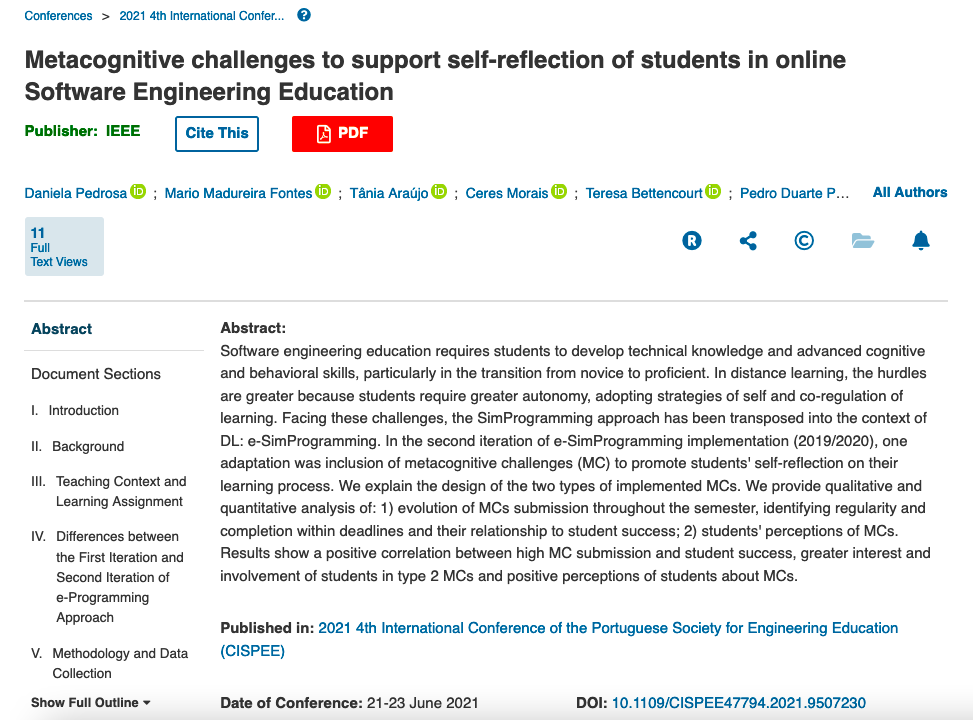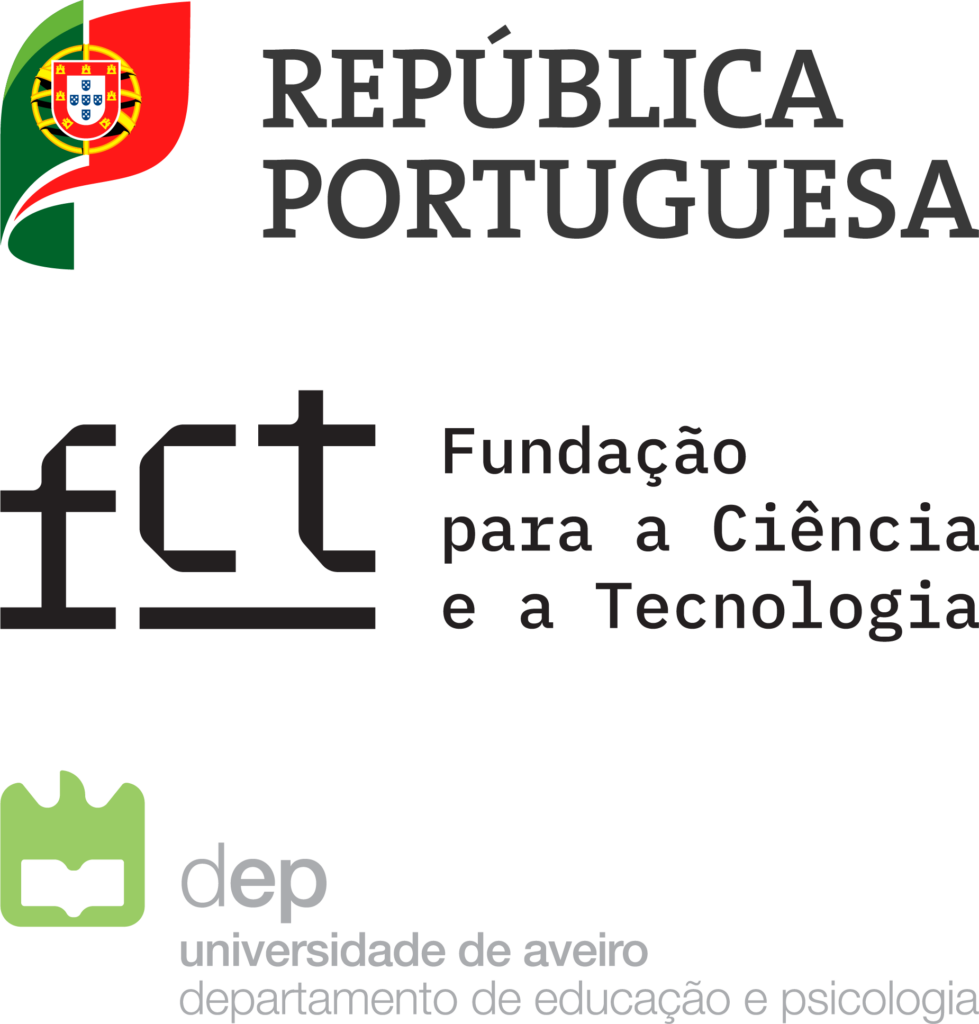Daniela Pedrosa (CIDTFF), Mario Madureira Fontes, Tânia Araújo, Ceres Morais, Teresa Bettencourt (CIDTFF), Pedro Duarte Pestana, Leonel Morgado & José Cravino (CIDTFF) | 4th International Conference of the Portuguese Society for Engineering Education (CISPEE), pp. 1-10
Abstract:
Software engineering education requires students to develop technical knowledge and advanced cognitive and behavioral skills, particularly in the transition from novice to proficient. In distance learning, the hurdles are greater because students require greater autonomy, adopting strategies of self and co-regulation of learning. Facing these challenges, the SimProgramming approach has been transposed into the context of DL: e-SimProgramming. In the second iteration of e-SimProgramming implementation (2019/2020), one adaptation was inclusion of metacognitive challenges (MC) to promote students’ self-reflection on their learning process. We explain the design of the two types of implemented MCs. We provide qualitative and quantitative analysis of: 1) evolution of MCs submission throughout the semester, identifying regularity and completion within deadlines and their relationship to student success; 2) students’ perceptions of MCs. Results show a positive correlation between high MC submission and student success, greater interest and involvement of students in type 2 MCs and positive perceptions of students about MCs.
– – – – –
Referências:
Pedrosa, D., Fontes, M. M., Araújo, T., Morais, C., Bettencourt, T., Pestana, P. D., Morgado, L., & Cravino, J. (2021). Metacognitive challenges to support self-reflection of students in online Software Engineering Education. In 2021 4th International Conference of the Portuguese Society for Engineering Education (CISPEE) (pp. 1-10). IEEE. https://doi.org/10.1109/CISPEE47794.2021.9507230





